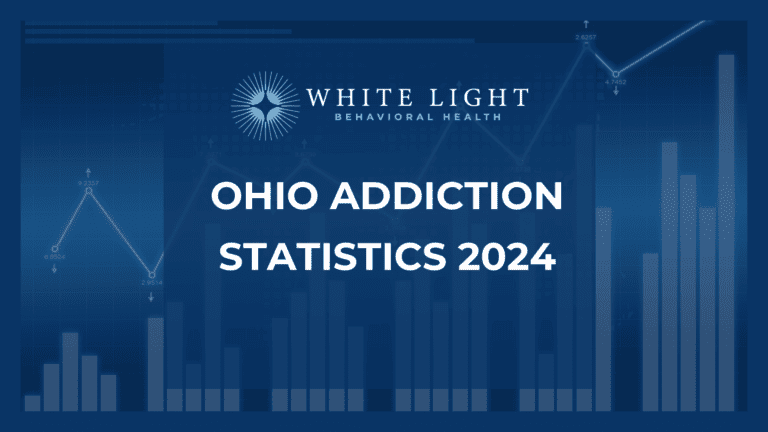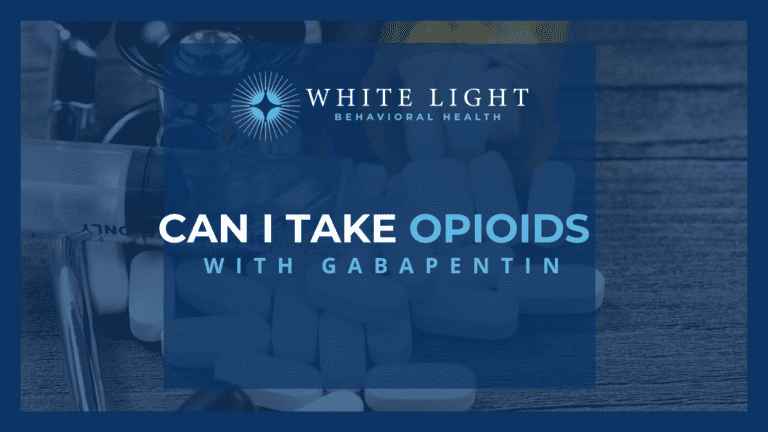At White Light Behavioral Health, we approach cocaine treatment with a comprehensive, personalized strategy. Recognizing that the impact of cocaine withdrawal varies from person to person, our programs are tailored to address the specific needs of each client. This includes specialized care for those with dual diagnoses, ensuring that clients who are dealing with co-occurring mental health conditions receive the integrated treatment necessary for holistic recovery. Our facility in Columbus, Ohio is equipped with state-of-the-art resources and a dedicated team committed to the health and well-being of each client.
Cocaine stands out as one of the most addictive substances, sought after for its stimulating effects that heighten alertness, energy, and bring on a sense of euphoria. Drawing from the 2020 National Survey on Drug Use and Health by SAMHSA, it’s alarming to note that over 5.2 million Americans aged 12 and older reported abusing cocaine. Continuous use of cocaine inevitably leads to dependence, making cessation a challenging endeavor fraught with intense withdrawal symptoms. Dive deeper into the nuances of cocaine detox, the nature of withdrawal symptoms, and the path to rehabilitation below.
Why White Light is the Best Choice for Cocaine Detox And Rehab in Ohio
- White Light offers a full continuum of addiction treatment services, led by an expert medical and clinical team that provides holistic treatment and individualized therapy in a supportive environment.
-
Expert Medical and Therapeutic Staff: Our team comprises professionals with extensive experience in addiction treatment, offering expert medical care alongside psychological support throughout the detox process.
-
Holistic Care Approach: Understanding that recovery encompasses more than just physical detox, White Light adopts a holistic approach to treatment, addressing mental, emotional, and physical health to support a comprehensive recovery.
-
Commitment to Individualized Care: We pride ourselves on providing personalized treatment plans, recognizing that each client’s journey to recovery is unique. This tailored approach enhances the effectiveness of our medical detox program and supports long-term success.
-
Supportive Environment: The atmosphere at White Light is designed to foster healing, offering a peaceful, supportive setting where clients can focus on their recovery without external pressures or distractions.
What To Expect From Our Cocaine Treatment Program
-
Medical Detoxification: Supervised by medical professionals, our detox program uses proven protocols to safely manage withdrawal symptoms, minimizing discomfort and supporting the body’s recovery.
- Individual and Group Therapy: Mental and emotional healing is a vital part of overcoming addiction. White Light offers a variety of therapy sessions, facilitating personal growth and the development of coping strategies.
- Wellness and Nutrition Programs: Recognizing the role of physical health in recovery, our wellness and nutrition programs aim to restore the body, promoting overall well-being and resilience against relapse.
- Aftercare Planning: Recovery doesn’t end with detox. We provide personalized aftercare planning to ensure each client has a roadmap for continued success and support post-detox.
You will probably arrive at the detox center when you are “high” or while crashing. But you need not worry. You will be warmly welcomed by the facility staff, who will support and guide you until you recover.
Once you start feeling better, a counselor will speak to you for a comprehensive psychiatric and medical assessment. Your counselor will discuss substance use, medical history, and other issues like if you have any underlying medical conditions.
The information you provide will help the medical staff design a personalized treatment program for you. Remember that your answers will determine your course of treatment, so it is essential to be honest when responding to your counselor’s questions.
The services provided by White Light Behavioral Health are designed to offer more than just detox; we provide a holistic recovery experience. Our comprehensive care includes:
The doctors and other healthcare workers will determine how long your detox will take, but it will be approximately 2 to 10 days. Medical staff will monitor your mental and physical health to determine when to discharge you from treatment. Remember that detox is just the first step of your treatment. You will need long-term support after detox to ensure you stay sober and drug-free.
Supervised cocaine treatment can occur in a residential (inpatient) or outpatient setting. If your addiction is not severe, your medical team may give you the option to stay in your home and attend treatment sessions at the facility for a given number of hours per day for a given number of days in a week.

However, cocaine addiction may have severely impacted you physically and psychologically. In this case, your medical team will recommend residential treatment, where you will reside in the rehab center. In a facility, you will be under the watch of medical personnel 24 hours a day, seven days a week. This is for your good, and you must cooperate with the facility staff.
Feeling unwell and tired is a common part of detox, rehab, and the initial stages of recovery. We want to reassure you that, at White Light Behavioral Health, your well-being is our top priority. You’ll be under the constant care of our medical team, available 24/7 to monitor your progress, check your vitals, and address any concerns you may have. Our staff is committed to providing a supportive and safe environment where every aspect of your health is looked after, including any underlying medical conditions you might have. Following the completion of your residential treatment, we offer the option to transition into outpatient care, ensuring a seamless continuum of support tailored to your recovery journey.

Cocaine Withdrawal
Cocaine withdrawal develops when you have used cocaine for an extended period and then abruptly cut back the amount you use or stop using it completely. Withdrawal is among the deadly risks of the continuous use of this drug because the symptoms of withdrawal manifest both psychologically and physically.
If you suffer withdrawal, it means your body has learned to depend on the drug to function normally. So, when you lower the quantity or stop using it, your body will react as it adjusts to working without the drug.
Symptoms of Cocaine Withdrawal
- Memory problems
- Difficulty concentrating
- Nightmares or vivid dreams
- Oversleeping or sleeping difficulties
- Persistent cocaine cravings
- Increased appetite
- Slowed movements
- Low physical or mental energy
- Fatigue
- Irritability
- Anxiety
- Depression (which may include suicidal thoughts)
- A deeply dysphoric mood

Cocaine Medical Detox: Do You Need It?
Though cocaine withdrawal symptoms aren’t as life-threatening as other drugs, they can be severe. However, some medical issues associated with withdrawal may require strict clinical oversight. Many medical experts consider the most serious cocaine withdrawal symptom to be severe depression that leads to suicidal thoughts. If you are a victim of such thoughts, you need close medical attention and withdrawal treatment as your doctor may see fit.
Medical issues related to cocaine withdrawal may include cardiac problems such as heart attacks and arrhythmias, both of which require medical treatment. People who stop using cocaine may also experience seizures. A seizure can be fatal if you are away from a medical facility.
Polysubstance use, defined as using more than one substance at a time, is common among cocaine users. If this sounds like your case, your withdrawal management may be a little more complicated, providing more reasons why you should recover in the safe hands of medical personnel.
Furthermore, the concern of co-occurring disorders is widespread among drug addicts. In fact, according to the CDC over 7.7 million adults in the United States have both mental illnesses and substance use disorders (SUD). The best way to manage such conditions is medical detox followed by behavioral change therapy (BCT) in a medically supervised environment.
Whatever the nature of your addiction, you will need medical cocaine detox to restore your normal body functions. When detox takes place in a medical facility, doctors will closely monitor your treatment to keep you as comfortable and safe as possible throughout your withdrawal process.
Cocaine withdrawal is unpleasant. Fortunately, you will not have to face it alone. You will have passionate healthcare workers with you and other recovering addicts with whom you can share your common experiences and help one another maintain sobriety.
Substances We Treat In Columbus, Ohio
At White Light Behavioral Health, we are dedicated to providing specialized detox and rehab programs that cater to the unique needs of each individual and the substances being abused. Our comprehensive approach ensures a supportive and effective pathway to recovery for those struggling with substance dependence. Below is a list of our detox programs:
- Alcohol
- Adderall
- Benzodiazepine
- Cocaine
- Fentanyl
- Klonopin
- Heroin
- Meth Detox
- Opioid Detox
- Suboxone Detox
- Xanax Detox
Each program is designed to provide the care and support needed to safely navigate the withdrawal process, laying the foundation for a lasting recovery.
Finding White Light Behavioral Health
White Light Behavioral Health is conveniently located in Ohio, offering an accessible haven for those seeking help with cocaine addiction. Our facility is designed to provide a serene environment conducive to healing and recovery.
Reach Out For Help With Cocaine Addiction In Columbus, Ohio
If you are looking for a cocaine detox and treatment facility, you don’t need to look further than White Light Behavioral Health in Columbus, OH. We have modern facilities and equipment and passionate and understanding medical personnel. Contact us today to learn more about how our team will help you develop the skills to navigate your road to recovery.
Frequently Asked Questions About Cocaine Detox In Ohio
Can I detox from cocaine at home?
Detoxing from cocaine at home can be risky due to potential withdrawal complications. Our medically supervised detox program offers a safe environment with professional support to manage withdrawal symptoms effectively and reduce the risk of relapse.
What happens after detox?
Detox is the first step in the recovery journey. Following detox, we recommend engaging in further treatment options such as therapy, counseling, and support groups offered by White Light to address the psychological aspects of addiction and support long-term sobriety.
Is there help available if I'm struggling with mental health issues as well?
Absolutely. Our program offers dual diagnosis treatment for individuals dealing with both substance use and mental health issues. We provide comprehensive care that addresses your mental health needs alongside your addiction, ensuring a holistic approach to your recovery.
What if I'm too scared to start because of withdrawal symptoms?
It’s completely normal to feel scared about facing withdrawal symptoms. Our medically supervised detox program is designed to minimize discomfort and manage symptoms safely. Our compassionate team will be with you every step of the way, providing the care and support you need to navigate this challenging phase.



